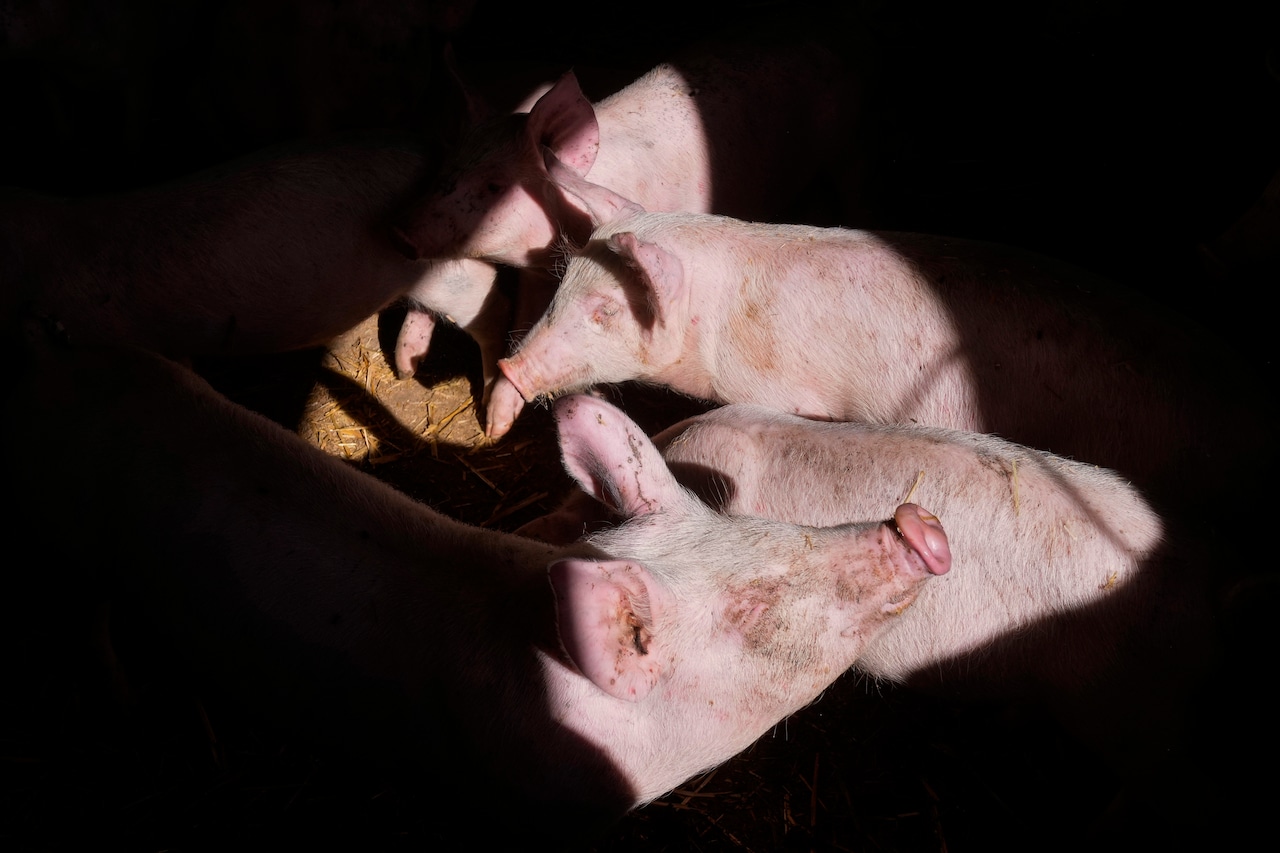First US Case: Backyard Pig Contracts Bird Flu in Oregon
Backyard Pig Contracts Bird Flu: A First for the U.S.
The animal kingdom sometimes throws us curveballs, doesn’t it? Who would’ve thought that a backyard pig in Oregon would make headlines for contracting bird flu, marking the first known case of its kind in the United States? This alarming occurrence raises plenty of questions about health, safety, and the interconnectedness of our ecosystems. Let’s dig into what this means for farmers, pig owners, and public health.
What Happened in Oregon?
In a rather startling development, health authorities confirmed that a domestically kept pig in Central Oregon tested positive for avian influenza, commonly known as bird flu. This isn’t just another animal illness; it’s the first instance of the disease jumping from birds to pigs in the U.S. These kinds of cross-species infections can spell trouble—especially considering the potential for mutated strains that could affect more than just our barnyard friends.
How did it all unfold? Bird flu is typically found in birds—especially wild waterfowl. These birds can carry the virus without showing symptoms, which creates the perfect storm for infections spreading unnoticed. When pigs come into contact with infected birds—say, through droppings or contaminated feed—they run the risk of contracting the virus. And guess what happened next? Right in our own backyard, a domestic pig did just that.
Why Is This Significant?
When we think about public health, we often focus on the direct impact on humans. But consider this: animal diseases matter too. The bird flu has made headlines for years, primarily in the context of poultry farming, causing significant economic losses and public health concerns. But this new development brings up a whole new can of worms (or, in this case, pigs!):
-
Public Health Risks: While the transmission of bird flu from pigs to humans is rare, it’s not impossible. Any time you have a novel virus emerging in a non-traditional host, it sends shivers down the spine of public health officials.
-
Animal Health: For farmers and backyard pig owners, this case is a wake-up call. Understanding how diseases can spread among different species is crucial for biosecurity measures.
-
Ecosystem Balance: We often forget that wildlife, farm animals, and humans are all part of one ecosystem. Issues like this disrupt the balance, reminding us that animal health is tied closely to human health.
The Symptoms and Impact on Pigs
Now, let’s be real: pigs aren’t exactly known for being quiet in the face of illness. If you own pigs or are considering getting one, it’s essential to know the signs of bird flu—just in case your little buddy decides to contract it.
Symptoms to Watch For:
- Sudden and severe respiratory distress
- Coughing or sneezing
- Fever
- Lethargy
- Neurological issues (such as lack of coordination)
Being vigilant is key because the earlier you catch something, the better the chances of recovery. If you notice your pig behaving unusually or showing any of these symptoms, it’s a good idea to reach out to a vet ASAP.
Prevention: Keeping Your Pigs Safe
Given this unsettling news, prevention should be at the forefront of every backyard farmer’s mind. Here are a few effective strategies for keeping your pigs safe:
What This Means for Oregon Farmers
Oregon is known for its rich agricultural landscape. However, this event may send ripples through the farming community. The direct impact on pig owners might include:
-
Increased Testing: Farmers may need to routinely test their livestock for bird flu, increasing costs but protecting their herds.
-
Economic Concerns: If bird flu spreads, there might be potential trade restrictions, affecting how farmers sell their livestock and products.
-
Educational Opportunities: This incident serves as a teachable moment for farmers. Knowing about viral transmissions can help prevent future outbreaks.
The Bigger Picture: Global Health Implications
We’re not just dealing with a local hiccup here; the implications of a bird flu outbreak can reach far beyond Oregon’s borders. Here’s how:
-
Agricultural Trade Flows: With safety protocols being strengthened worldwide, affected states may face trade restrictions that could impact the global agricultural economy.
-
Potential for Human Transmission: While this incident has not shown direct transmission to humans, it’s a reminder that viruses can mutate. Keeping an eye on these developments is critical for global health.
-
Research and Development: This situation may inspire more research into zoonotic diseases (those passing from animals to humans), driving innovation in vaccines and treatments.
Conclusion
The discovery of bird flu in a backyard pig in Oregon is far from just a local story; it serves as a crucial reminder of the interconnected web of health—between humans, animals, and the environment. As we learn more, staying informed and proactive can help prevent similar situations from arising. Let’s protect our furry friends and ourselves while ensuring that we’re doing right by our ecosystem.
Being aware of the symptoms, practicing good biosecurity, and staying informed about outbreaks can safeguard against risks that might arise. In our increasingly interconnected world, it’s important we never underestimate the impacts of animal health on ours.
FAQs
1. Can humans get bird flu from pigs?
While it’s rare for humans to contract bird flu from pigs, it is possible. Vigilance is essential if bird flu cases arise.
2. How can I tell if my pig is sick?
Signs of illness in pigs may include coughing, lethargy, respiratory distress, or neurological issues. If you notice any of these symptoms, contact a veterinarian.
3. What biosecurity measures should I enforce on my farm?
Some simple biosecurity measures include keeping the area clean, limiting visitor access, and ensuring good hygiene practices.
4. Is there a specific vaccine for bird flu in pigs?
Currently, there is no specific vaccine for bird flu for pigs. However, discussing available vaccinations for common pig illnesses with your vet is wise.
5. What other animal diseases should I be concerned about?
Keep an eye on transmissible diseases such as swine flu, foot-and-mouth disease, and any other local outbreaks that may present risks.







